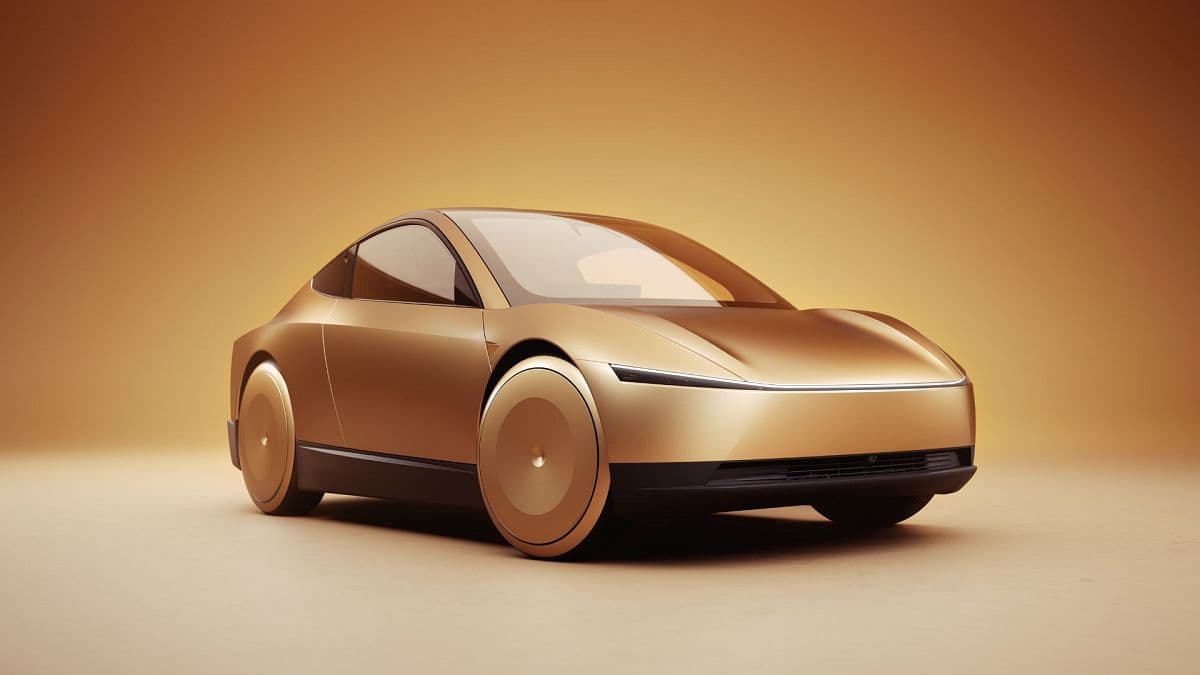Tesla Confirms Early 2026 Mass Production for CyberCab, Bolstered by AI5 Hardware Progress

Tesla is on track to begin mass production of its dedicated autonomous vehicle, the CyberCab, in early 2026, a significant step in the company's ambitious robotaxi strategy. This timeline is supported by the progress of its next-generation AI5 hardware and confirmed factory readiness. According to a recent social media post by "Amy" on June 27, 2025, "> TESLA ROBOTAXI AI5 hardware on track. The CyberCab also enters mass production in the beginning of 2026. Tesla has saved space in the factories for the CyberCab lines. Tesla is set to massively scale RoboTaxi— all the pieces are falling into place. This confirmation of both timing and supply chain readiness is big."
The CyberCab, unveiled in October 2024, is designed as a two-passenger, fully autonomous vehicle without a steering wheel or pedals, with a projected price point under $30,000. Production is slated to occur at Tesla's Giga Texas facility, where casting racks labeled "RTTX" (Robotaxi Texas) indicate preparations are well underway. The company aims for an annual production goal of 2 million CyberCabs once multiple factories reach full capacity, signaling a major shift in its manufacturing focus.
Crucial to the CyberCab's deployment is the advancement of Tesla's AI5 hardware, the fifth generation of its Full Self-Driving (FSD) computer. Renamed from HW5 to emphasize its artificial intelligence capabilities, the AI5 chip is rumored to deliver 2,000 to 2,500 trillion operations per second (TOPS), representing a substantial five-fold increase over the current HW4's 500 TOPS. This powerful new hardware, expected to enter production around January 2026 and manufactured by Samsung and TSMC, is essential for handling the complex real-time data processing required for unsupervised autonomous driving.
Tesla's strategic pivot towards AI and robotics, with the robotaxi at its core, is evident in its factory planning, including dedicated space for CyberCab production lines. Supply chain readiness, a critical factor for scaling, has also been highlighted, with Tesla resuming shipments of Chinese components for CyberCab and Semi production following a recent tariff truce. This integrated approach aims to enable a massive scaling of the robotaxi service.
Despite these advancements, the path to widespread autonomous vehicle deployment faces challenges. Regulatory hurdles for Level 5 autonomy remain significant, and Tesla's FSD software, while progressing, still requires human intervention in complex scenarios, lagging behind competitors like Waymo in disengagement rates. While Elon Musk has historically set optimistic timelines, the confirmed production schedule for early 2026 suggests a more concrete phase for Tesla's robotaxi ambitions.